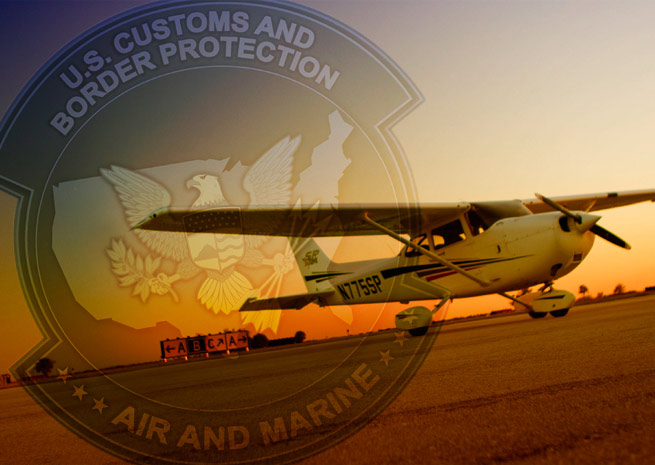During a one-on-one meeting April 30, AOPA President Mark Baker told the head of Customs and Border Protection that egregious encounters with general aviation aircraft must end.
Baker reiterated AOPA’s view that there should be probable cause or an articulable, reasonable suspicion of illegal activity before CBP can stop or encounter GA aircraft. Pilots who have been stopped and searched have been told that their flights were suspicious because they flew too slowly, made frequent stops, landed or departed from a state where marijuana is legal, traveled long distances, or changed the flight plan en route.
AOPA has received more than 50 reports from members of being questioned and sometimes searched by CBP agents or local law enforcement officers acting at their request. In some cases, the officers approached pilots with drawn weapons or used dogs to inspect the aircraft. In addition, fixed-base operators nationwide have reported receiving phone calls from individuals claiming to be law enforcement officers and seeking information on arriving GA flights, sometimes asking FBO personnel to look around the aircraft and not the let the pilots or passengers know.
“We understand and support efforts to stem the flow of illegal drugs around the country, but that doesn’t alleviate the need to safeguard individual rights,” Baker said.
During Wednesday’s meeting, CBP leaders acknowledged that agency hand-offs to local law enforcement authorities have not always gone as planned, and CBP is now reviewing those procedures as a result of AOPA’s input.
Also during the meeting, CBP Commissioner R. Gil Kerlikowske said he is currently undertaking a bottom-up review of CBP’s enforcement activity regarding GA aircraft as promised during his recent Senate confirmation process. Kerlikowske added that he is taking action to address incidents that involve aggressive law enforcement tactics being used on law-abiding citizens. He noted that the agency is focusing on better directing CBP resources and personnel toward individuals who are conducting illegal activity.
“This meeting was a step in the right direction in terms of bringing these incidents to an end, and we will continue to monitor CBP’s actions regarding GA aircraft,” said Baker. “At the same time, we won’t back down when it comes to protecting the rights of pilots, and we’ll continue to work with CBP and policy makers to ensure we get a satisfactory resolution.”
AOPA is urging members to tell the association about any encounters they have with CBP or law enforcement officers acting at the agency’s request. Reports can be made by telephone at 800/USA-AOPA or online.
CBP checklist
Pilots are encouraged to carry AOPA's "What to do if stopped by law enforcement" checklist on their kneeboards. The checklist guides pilots through questions to ask law enforcement officers and provides possible responses to a request for an aircraft search.




